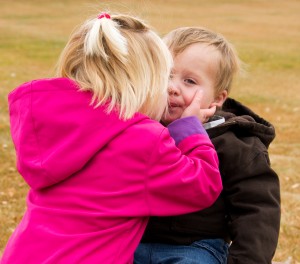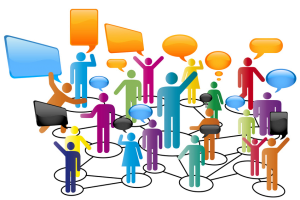
Image from http://www.brainyquote.com/quotes/quotes/g/gertrudest107878.html
May we always keep our common sense…
It is hard to believe it has been a week since EC&I 831 made its debut in my life. I must admit that at about 9:00 p.m. on that very night I was afraid my brain may explode from the sheer amount of information I had taken in! I was definitely feeling overwhelmed, yet somehow comforted by many of my classmates shared concerns (hey, misery loves company right??). In fact, I felt like I maybe a leg up on some, as I was already fairly proficient with Twitter and had just started up a blog. But as I started to thinking about all the things I wanted and needed to learn, the panic set in again. Where does a week go?? Now here I sit on Tuesday afternoon (thank goodness for preps!), thinking about how to make my digital presence, and how to introduce myself to the rest of you.
Who am I?
As my tagline suggests, my 4 most important roles in life are as a teacher, student, mother, and wife (in no particular order). I have a BSc from the U of S and a BEd (MEAD program) from the U of R. I have been teaching in rural SK since 2005, and I have taught everything from Grade 2-12. I can’t wait until I get to teach Kindergarten (someone really needs to develop a sarcasm font). In a perfect world I would teach high school Science, but as any of my rural colleagues know, you have to be very flexible in small schools. I started my MEd (Educational Administration) in January 2012, and this is my 5th class.
I am married (Danny) and have 2 children (Karlee, 4 and Jaxon, 2). We live on a farm with some sheep, 3 dogs, and a horse. When I am not at school, I like going to Rider games, running, gardening, and playing with my kids.
What do I want to learn?
I want to learn to use technology in a meaningful, productive way. To move beyond computers as a word processor/research device. To teach students how important it is to collaborate and share and be good digital citizens. We have the ability to connect with people around the world within seconds, and I want to bring that experience to my students (as soon as I learn how :)).
I am always ready, willing, and able to try new things, but I am guilty of getting caught up in the busyness of everyday life and sticking with the tried and true. This course is a good opportunity to network with other like minded individuals and keep each other motivated to “Learn something new everyday”.
We should all be more like children- forgiving, carefree, and full of questions.

The two most important people in my life.




